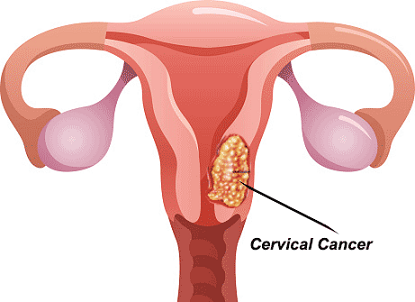A Gynaecologist, Dr Ruqayyah Mustapha, says more than 500,000 women die annually of cervical cancer worldwide.
She made the disclosure at a cervical cancer awareness campaign, organised by an Islamic group, Sisters of Jannah (SOJ), for women to commemorate the cancer awareness month, on Monday in Benin.
According to Mustapha, of the Nigeria Air Force Medical Centre, Benin, about 100,000 new cases of cervical cancers are detected annually in Nigeria.
She called on women groups to engage in serious awareness campaigns on the need for women in the state to always go for screening to enhance early detection of the disease.
READ ALSO :COVID-19: Global Deaths Surpass 1.2m – Johns Hopkins University
Mustapha, who spoke on the topic: Escaping/Surviving Cervical Cancer, noted that the disease was the second most common cancer among women worldwide.
“Cervical cancers occur when abnormal cells on the cervix grow out of control.
“Cervix is the lower part of the uterus that opens into the vagina. It is the second most common cancer among women worldwide.
“More than 500,000 women worldwide die of cervical cancer annually, while about 100,000 new cases are being recorded annually in Nigeria,” she stated.
The gynaecologist identified what she called the Human Papilloma Virus (HPV) as the major cause of cervical cancer.
“Long-lasting sexually-transmitted infection, with certain types of HPV, may also lead to cervical cancer.
“There are about 100 strains of HPV, but most commonly-implicated are HPV-16 and HPV- 18.
“Other cancers caused by this virus include: vulva ca, vaginal ca, penile ca, anal ca, rectal ca and throat ca,” she said.
Mustapha added that those at risk of the infection were women above the age of 30, those with multiple sexual partners and those who had given birth to three or more children.
She also stated that having sexual activities at below the age of16 could also be a risk factor for cervical cancer.
The gynaecologist listed bleeding occurring in-between menstrual periods, bleeding after sexual intercourse, bleeding after menopause and increased vaginal discharge as some of the symptoms.
She recommended bimanual pelvic examination, pap testing, HPV testing, colposcopy, biopsy, pelvic examination under anaesthesia, X-ray, CT scan and MRI for every woman to ensure early detection.
“To prevent the disease, vaccinate years between the age of nine and 13 with two doses of HPV vaccine.
“You should do pap smear test every three years once you are 21 years or more, while women between 30 and 60 years should do both pap smear test and HPV test every five years.
“Sexually-active group, with higher risk should do screening for sexually-transmitted diseases like gonorrhoea, syphilis and HIV.
“Avoid multiple sexual partners and stay faithful in your relationship,” she added.
Mustapha further explained that cervical cancer was treatable, if detected early and if it had only affected the deeper layer of the cervix but had not gone to other parts of the body.
“Treatments of cervical cancer include surgery, radiation therapy and chemotherapy, among others,” she said.
Earlier in her welcome address, Hajia Nana-Aishat Kassim-Hassan, the Benin Zonal Coordinator of SOJ, said the awareness campaign had become necessary, as most women were not aware of cervical cancer.
She urged participants to take advantage of the awareness campaign to go for screening.
“Cancer is a deadly disease but when detected early, lives can be saved. It is not a death sentence’ so do not panic,” she said.



Leave a Reply